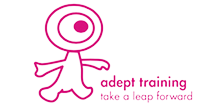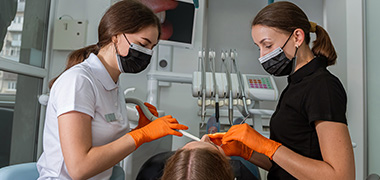
How do I become a anaesthetic technician?
Diploma of Anaesthetic Technology and Practice
- There are no mandated entry requirements.



Certificate III in Health Administration
- There are no mandated entry requirements.


Certificate III in Allied Health Assistance
- There are no mandated entry requirements.
 Foundation Education
Foundation Education
Bachelor of Nursing
- There are no mandated entry requirements.








Related occupations
Allied Health Assistant
An Allied Health Assistant supports clients in achieving their goals through various therapies, implementing programmes designed by allied health professionals.
Medical Imaging Assistant
A Medical Imaging Assistant operates imaging equipment, performs scans, ensures image quality, and requires strong technical skills and attention to detail.
Exercise Physiologist
An Exercise Physiologist designs physical activity programs for clients with diverse needs, assessing progress and adapting plans as required.
Anaesthetist
An Anaesthetist administers anaesthesia during surgeries, monitors vital signs, manages pain, and collaborates with surgical teams for patient safety.
Cardiac Technologist
A Cardiac Technologist operates imaging equipment, performs stress tests, analyses ECGs, and supports cardiologists, ensuring patient care.
Mental Health Support Worker
A Mental Health Support Worker aids individuals with mental health issues, offering daily support, care plans, and collaboration with healthcare teams.
Osteopath
An Osteopath assesses and treats musculoskeletal issues, improves mobility, and advises on injury prevention in clinics, hospitals, or private practices.
Speech Pathologist
A Speech Pathologist helps clients improve communication, manage speech or swallowing issues, and develop alternative communication methods.
Chiropractor
A Chiropractor diagnoses and treats musculoskeletal issues through joint adjustments, requiring strong communication, interpersonal, and time management skills.
Genetic Counsellor
Genetic Counsellors provide information and support to individuals at risk of genetic conditions, helping them understand their diagnosis and make necessary adjustments.
Exercise Scientist
An Exercise Scientist evaluates and enhances physical performance by creating customised fitness programs and collaborating with healthcare professionals.
Hospital Scientist
Hospital Scientists conduct tests on samples to aid in diagnosing and treating patients, ensuring accurate results to support healthcare.
Nutritional Therapist
Nutritional Therapists guide clients on diet and health, creating personalised plans and educating them on nutrition to improve wellness.
Rehabilitation Consultant
A Rehabilitation Consultant aids individuals in recovering from injury or illness by creating tailored plans and coordinating support for their goals.
Neuromuscular Therapist
Neuromuscular Therapists help clients with neurological conditions by designing exercises and modifications to enhance mobility and quality of life.
Hand Therapist
Hand Therapists assist patients in recovering from upper limb injuries and conditions by creating personalised treatment plans and exercises.
Paediatric Occupational Therapist
Paediatric Occupational Therapists support children with disabilities or health issues by developing treatment plans for daily living tasks.
Hospital Social Worker
Hospital Social Workers support patients and families in navigating medical, financial, and emotional challenges related to illness and injury.
Mental Health Social Worker
Mental Health Social Workers provide counselling and therapeutic support to clients, helping them recover from mental illness and trauma.
Sports Therapist
A Sports Therapist assesses and treats sports injuries, develops rehabilitation programmes, offers manual therapy, and advises on performance optimisation.
Healthcare Social Worker
Healthcare Social Workers support patients and families in navigating medical systems and coping with the emotional challenges of illness and injury.
Aged Care Social Worker
Aged Care Social Workers support the wellbeing of seniors in care facilities, helping them stay healthy, socially connected, and empowered.
Palliative Care Social Worker
Palliative Care Social Workers support terminally-ill patients and their families in navigating medical systems and coping with emotional challenges.
Cardiac Technician
Cardiac Technicians diagnose heart conditions by performing tests like ECGs and echocardiograms, assisting cardiologists and educating patients.
Cardiac Scientist
A Cardiac Scientist assesses heart function through diagnostic tests and collaborates with cardiologists to ensure effective patient care.
Exercise Physiotherapist
An Exercise Physiotherapist designs tailored exercise programmes to enhance health, manage chronic conditions, and promote rehabilitation.
Health Informatician
A Health Informatician optimises health information systems to enhance patient care and efficiency, analysing data and ensuring compliance with standards.
Global Health Advisor
A Global Health Advisor develops strategies to improve health outcomes globally, focusing on policy, disease prevention, and healthcare delivery.
Allied Health Professional
An Allied Health Professional collaborates with healthcare providers to assess, diagnose, and treat patients, improving their health outcomes.
Respiratory Therapist
A Respiratory Therapist helps patients with breathing disorders by assessing conditions, administering treatments, and educating them on techniques.
Speech Therapist
A Speech Therapist assesses and treats speech and communication disorders, creating tailored therapy plans to enhance clients' communication skills.
Vision Therapist
A Vision Therapist enhances visual skills and addresses vision-related issues through customised therapy programmes for patients of all ages.
Paediatric Speech Pathologist
A Paediatric Speech Pathologist evaluates and treats children’s communication disorders, creating tailored therapy plans to enhance their skills.
Common questions
How much does an Anaesthetic Technician earn?
In Australia, a full time Anaesthetic Technician generally earns $1,453 per week ($75,556 annual salary) before tax. This is a median figure for full-time employees and should be considered a guide only. As you gain more experience you can expect a potentially higher salary than people who are new to the industry.
What are the job opportunities for an Anaesthetic Technician?
Employment numbers in this industry have remained stable in recent years. There are currently 620 people working as an Anaesthetic Technician in Australia compared to 550 five years ago. Anaesthetic Technicians may find work in larger towns and cities where major health facilities are located.
Source: Australian Government Labour Market Insights
How do I become an Anaesthetic Technician?
If you’re planning a career as an Anaesthetic Technician, consider enrolling in a Diploma of Anaesthetic Technology. You’ll learn to monitor patients’ vital signs while under anaesthesia, assist with clinical procedures and respond to anaesthesia-related emergencies.
Further reading


A Beginner's Guide to Laboratory Technician Training in Australia
7th February 2025)

